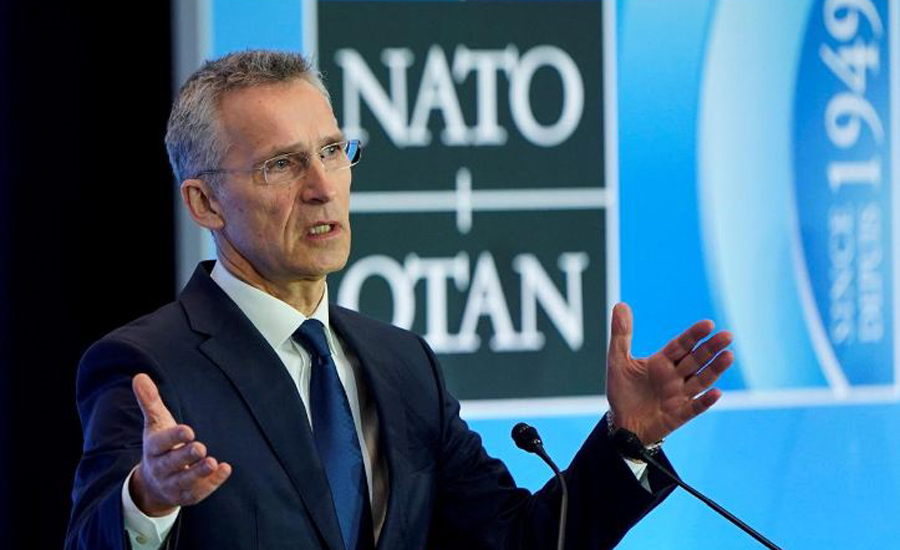NATO calls on Russia to destroy new missile, warns of response

BRUSSELS (Reuters) - NATO urged Russia on Tuesday to destroy a new missile before an August deadline and save a treaty that keeps land-based nuclear warheads out of Europe or face a more determined alliance response in the region.
NATO defence ministers will discuss on Wednesday their next steps if Moscow keeps the missile system that the United States says would allow short-notice nuclear attacks on Europe and break the 1987 Intermediate-range Nuclear Forces Treaty (INF).
“We call on Russia to take the responsible path, but we have seen no indication that Russia intends to do so,” Secretary-General Jens Stoltenberg told a news conference. “We will need to respond,” Stoltenberg said.
He declined to go into more details. But diplomats said defence ministers will consider more flights over Europe by U.S. warplanes capable of carrying nuclear warheads, more military training and the repositioning U.S. sea-based missiles.
The United States and its NATO allies want Russia to destroy its 9M729/SSC-8 nuclear-capable cruise missile system, which Moscow has so far refused to do. It denies any violations of the INF treaty, accusing Washington of seeking an arms race.
Without a deal, the United States has said it will withdraw from the INF treaty on Aug. 2, removing constraints on its own ability to develop nuclear-capable, medium-range missiles.
The dispute has deepened a fissure in East-West ties that severely deteriorated after Russia’s seizure of Crimea and its involvement in Syria.







